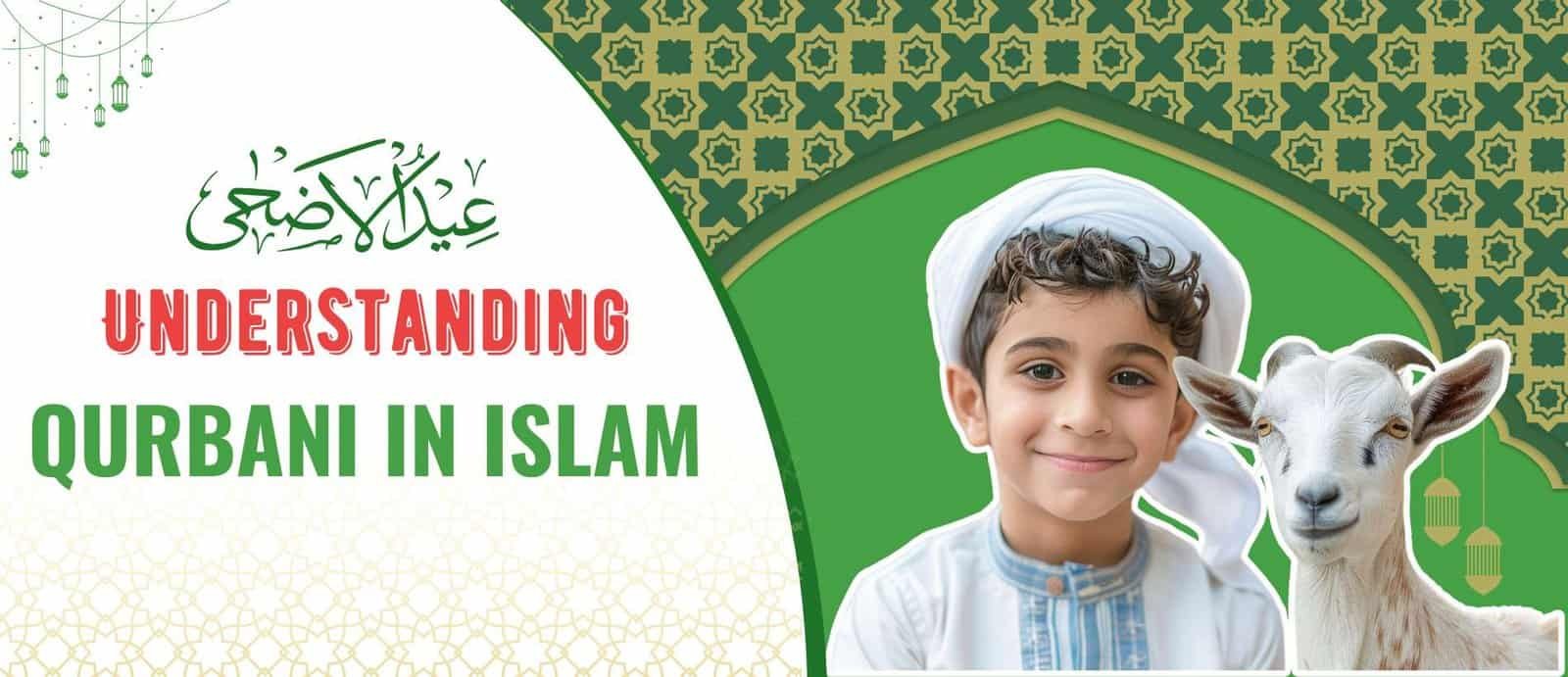
Understanding Qurbani In Islam
Understanding Qurbani In the Islamic faith, the concluding month of the lunar calendar, Dhul Hijjah, holds profound significance as a time of sanctity and devotion. Among its observances, two pivotal events stand out: Qurbani and Eid al-Adha, often referred to as ‘big Eid’ or ‘greater Eid’. These two occasions are closely linked, occurring consecutively within this sacred month.
Eid al-Adha mirrors Eid al-Fitr in its spirit of celebration, uniting families and friends in communal prayer, feasting, and gift-giving. Just as Eid al-Fitr marks the end of Ramadan, Eid al-Adha signifies the completion of another religious obligation Qurbani.
Understanding Qurbani involves tracing its origins back to the venerable Prophet Ibrahim (AS). According to tradition, Ibrahim (AS) received divine visions instructing him to sacrifice his son Ismail (AS) as a test of his devotion to Allah (SWT). Without hesitation, Ibrahim (AS) resolved to obey this command, preparing himself and his son for the solemn act.
Upon reaching Mount Arafat to perform the sacrifice, Ibrahim (AS) shared his vision with Ismail (AS), who willingly accepted the divine decree. As Ibrahim (AS) prepared to fulfill the command, Allah (SWT) intervened, substituting Ismail (AS) with a ram, thereby sparing the boy’s life. Understanding Qurbani, therefore, involves recognizing this divine act of mercy and obedience.
Muslims worldwide enact the practice of Qurbani on the 10th day of Dhul Hijjah, commemorating the steadfast faith of Ibrahim (AS) and Ismail (AS). Understanding Qurbani means recognizing that every eligible Muslim is obligated to partake in this ritual, adhering to specific guidelines:
- Animals, whether sheep, goats, cows, buffalos, or camels, must meet age and health criteria to be eligible for sacrifice.
- The act of slaughter must adhere to prescribed ritual and ethical standards, ensuring minimal suffering for the animal.
In instances where individuals are unable to perform Qurbani themselves, organizations like Albaraka Trust facilitate the process, allowing donors to contribute towards the sacrifice, which is then distributed to those in need. Understanding Qurbani includes appreciating the logistical and charitable efforts that enable this ritual to be carried out globally.
The significance of Qurbani transcends mere ritual; it symbolizes unwavering devotion and selflessness in service to Allah (SWT). Understanding Qurbani means recognizing it as a means of providing for the less fortunate, echoing the generosity exemplified by Prophet Ibrahim (AS) and his son.
In essence, understanding Qurbani involves acknowledging it as both an expression of faith and a gesture of compassion towards humanity. Through the charitable efforts of organizations like Albaraka Trust, the spirit of Qurbani continues to resonate, fostering unity and goodwill within the global Muslim community.







No comment yet, add your voice below!